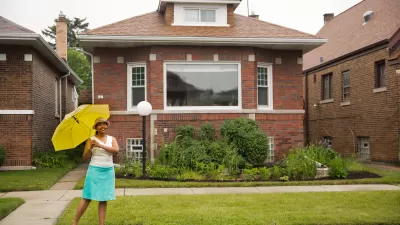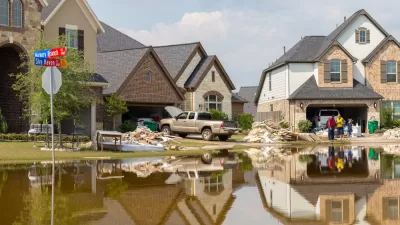Natalie Bicknell notes several deficiencies in the roadmap that resulted from Seattle's participation in the Rockefeller Foundation's now-defunct 100 Resilient Cities program.

When the Rockefeller Foundation pulled the plug on its much-vaunted 100 Resilient Cities program earlier this year, Seattle was still in the middle of its process. "As a result, in comparison to the work achieved by other cities, Seattle's Resilience Roadmap feels rushed and strangely backward looking. Reading through it, I was struck by how the material resembles a laundry list of achievements accomplished by current Mayor Jenny Durkan's administration," Natalie Bicknell writes.
In addition to a generally retrospective focus, the roadmap is also light on details when it comes to weathering natural disasters and climate change. That is, the reasons why resilience became part of the conversation in the first place.
"Seattle's report contains only one slim section devoted to its current strategies for combatting climate change," Bicknell says. And "for a city as threatened by earthquakes as Seattle is, the even shorter shrift given to natural disaster preparedness is a major weakness of the report."
Despite the Seattle roadmap's shortcomings, Bicknell concludes with a word of praise for the erstwhile program. "What 100RC seemed to understand is that cities are complex ecosystems. Establishing urban resilience doesn't result from disconnected programs and policies; instead it arises when the interconnected nature of urban and environmental challenges is acknowledged."
FULL STORY: Seattle’s Resilience Roadmap Lacks a Cohesive Vision for the Future

Maui's Vacation Rental Debate Turns Ugly
Verbal attacks, misinformation campaigns and fistfights plague a high-stakes debate to convert thousands of vacation rentals into long-term housing.

Planetizen Federal Action Tracker
A weekly monitor of how Trump’s orders and actions are impacting planners and planning in America.

San Francisco Suspends Traffic Calming Amidst Record Deaths
Citing “a challenging fiscal landscape,” the city will cease the program on the heels of 42 traffic deaths, including 24 pedestrians.

Defunct Pittsburgh Power Plant to Become Residential Tower
A decommissioned steam heat plant will be redeveloped into almost 100 affordable housing units.

Trump Prompts Restructuring of Transportation Research Board in “Unprecedented Overreach”
The TRB has eliminated more than half of its committees including those focused on climate, equity, and cities.

Amtrak Rolls Out New Orleans to Alabama “Mardi Gras” Train
The new service will operate morning and evening departures between Mobile and New Orleans.
Urban Design for Planners 1: Software Tools
This six-course series explores essential urban design concepts using open source software and equips planners with the tools they need to participate fully in the urban design process.
Planning for Universal Design
Learn the tools for implementing Universal Design in planning regulations.
Heyer Gruel & Associates PA
JM Goldson LLC
Custer County Colorado
City of Camden Redevelopment Agency
City of Astoria
Transportation Research & Education Center (TREC) at Portland State University
Jefferson Parish Government
Camden Redevelopment Agency
City of Claremont





























